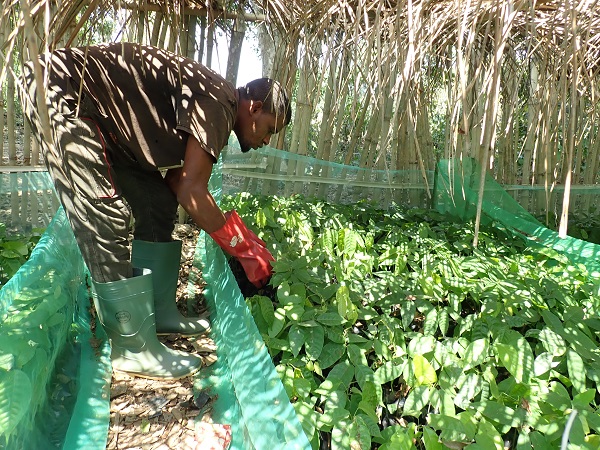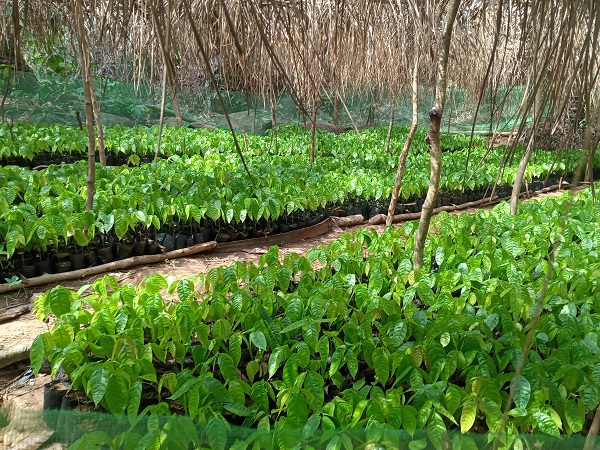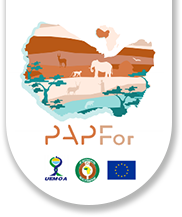Home / News / Improving cocoa sustainability to reduce deforestation and improved (...)
Improving cocoa sustainability to reduce deforestation and improved livelihoods

In the Cross River landscape, cocoa is the main source of income for local farmers, but it is also one of the main causes of deforestation. This deforestation destroys local watersheds and threatens the viability of corridors in the landscape essential for Cross River gorillas and forest elephants.
Over the last few months, the PAPFor project in Cross River has established 16 new nurseries in the communities surrounding Cross River National Park and plans to raise 160 000 improved cocoa seedlings. Cocoa pods were purchased from the Cocoa Research Institute of Nigeria and used to produce individual seedlings. The cocoa seedlings will be given out to roughly 1 600 local farmers for planting on existing farms in July/September.
In return for the seedlings and a programme of support from WCS, each farmer signs a ‘conservation contract’ and agrees to limit cocoa expansion into new forest areas. Close monitoring of the cocoa farms to ensure traceability is an important part of our work in the landscape.


